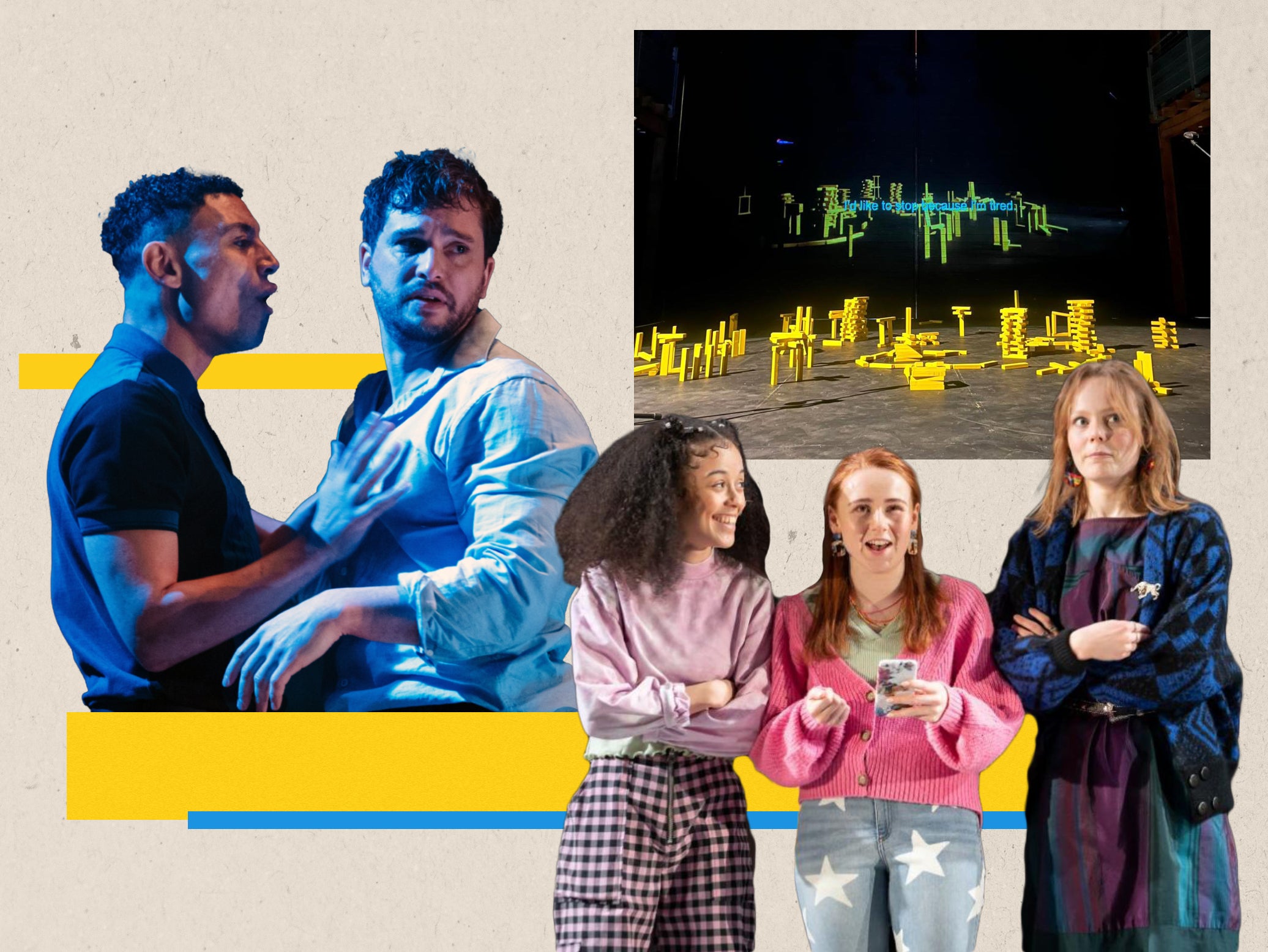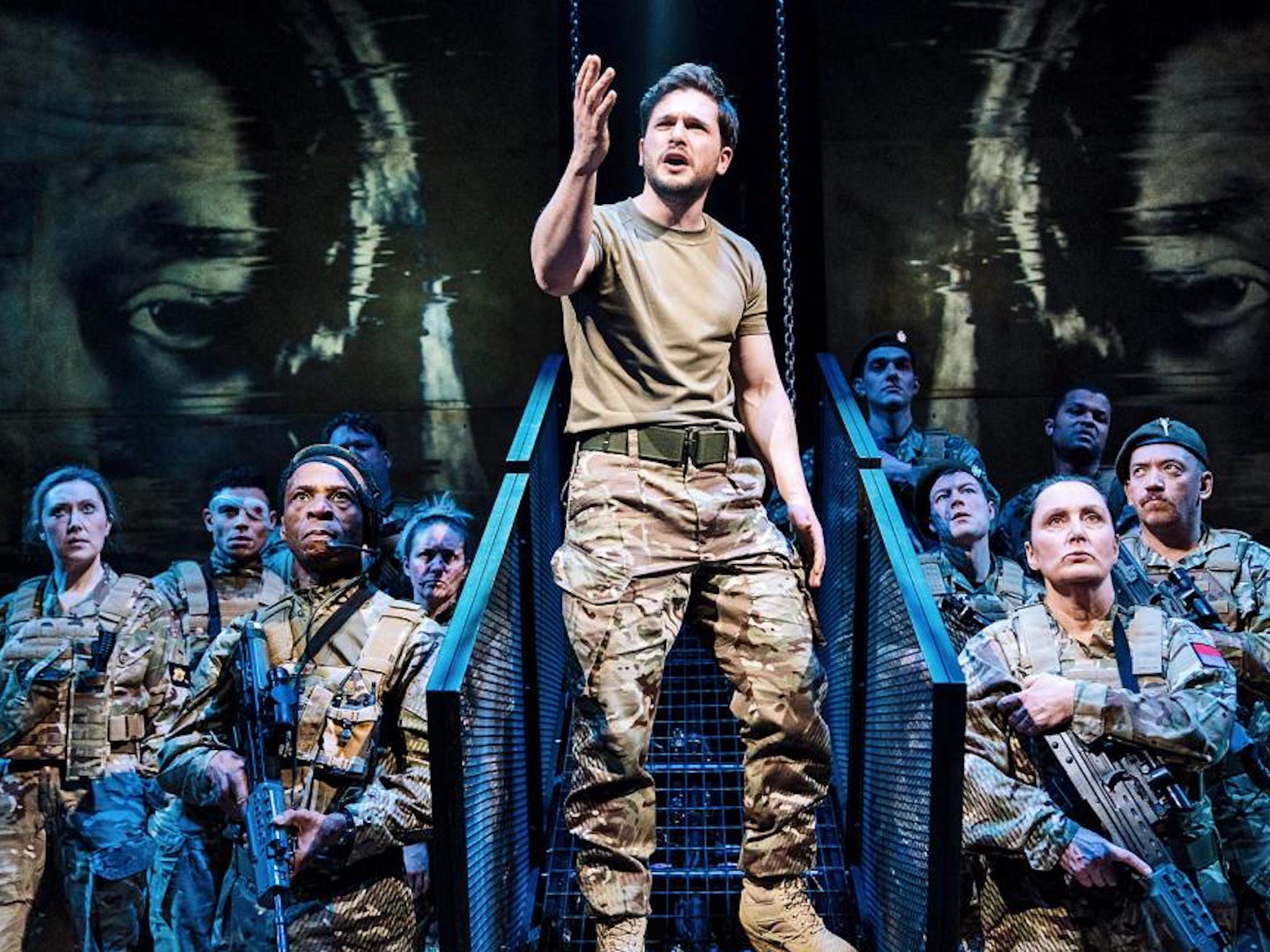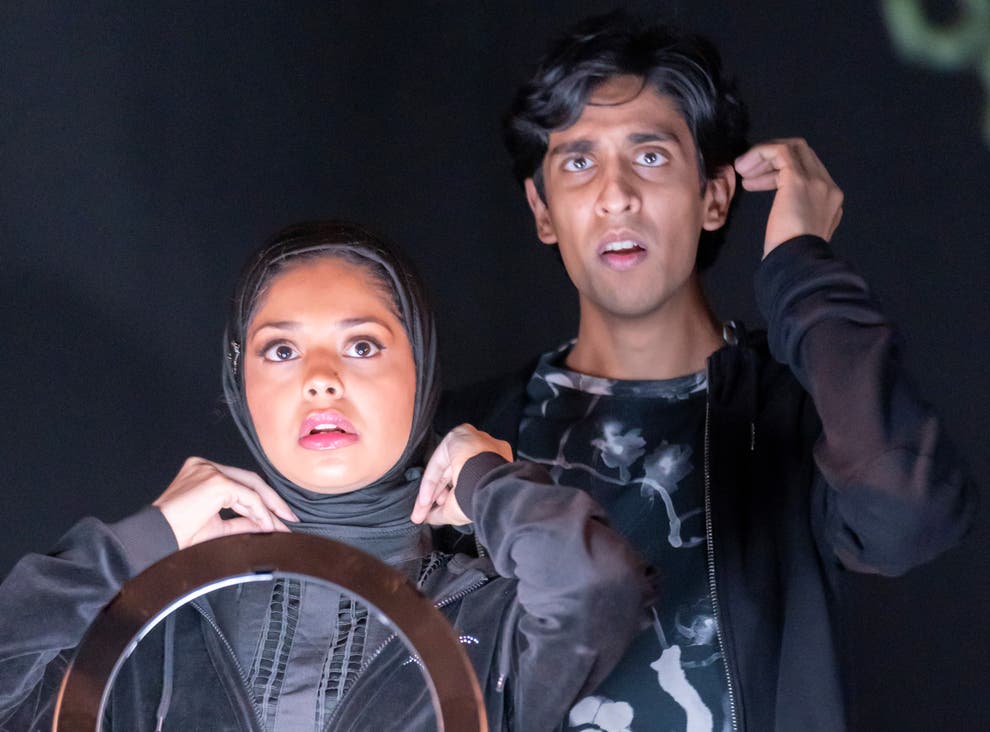The week on stage: From Kit Harington’s Henry V to the verbatim epic Our Generation
The highs and lows of the week’s theatre

This week’s crop of theatre includes an uncomfortably relevant production of Shakespeare’s historic war play, a verbatim production assembled from over 600 hours of interviews with 12 adolescents over the last five years, and a play where the audience become the performers.
Henry V – Donmar Warehouse ★★★★☆
Henry V is an intrinsically doubled-edged work. Is Shakespeare’s Plantagenet hero the supreme instance of patriotism as he trounces the French at Agincourt? Or is he a war criminal? Or is he a bit of both – wrapped up (courtesy of the Bard’s profligate genius) in the one deeply conflicted individual?
Cut to this week. Vladimir Putin invades Ukraine without provocation. His motive – to hold on to power, to prevent the spread of Nato. The brave people of Ukraine put up a heroic resistance. So it says a lot for the excellently controversial revival of Henry V, which has just opened at the Donmar Warehouse, that it manages to rise to this crazy occasion with well-drilled zest and discipline. It is directed by Max Webster and stars Kit Harington, who is packing the Donmar out because of his Game of Thrones fanbase. Harington as Henry is very fine indeed. His performance pinpoints how the king compensates for his troubled conscience by borderline-deranged flurries of “we happy few” patriotic pep talk. He is often close to banked-down hysteria. His wooing of Kate is as bluff and intimidating, in its maladroit courtly male-order manner, as the moment when the back wall parts in a cross shape, and the monarch looms forward on a gantry to harangue the citizens of Harfleur about the rape and pillage they can expect if they resist his will.
There must be so many demands on the time of Ukraine’s ambassador to Britain at the moment that you would think twice about inviting him to anything. But I think he would be intrigued, rather than affronted, by Webster’s production. The show exemplifies how the meaning of a theatrical production can change radically. A day can make all the difference. Make no doubt: this Henry V is historic in more ways than one. Paul Taylor
Read the full review here.

Our Generation – Dorfman ★★★☆☆
Teenagers have had a rough go of it recently, and Alecky Blythe’s verbatim epic Our Generation, assembled from over 600 hours of interviews with 12 adolescents over the last five years, makes an ambitious attempt to capture some ineffable sense of what it means to be young in Britain. Stories span from Birmingham to Glasgow, from Belfast to south London. Blythe assembles and arranges these interviews like a conductor, and there is certainly something musical in how certain moments refract and emphasise others. Our Generation is at its best, and most compelling, when Blythe manages to juxtapose differing experiences of a common hurdle, such as mock GCSEs or leaving school: where smart, precocious Robyn takes a job in a chicken shop and dreams about studying screenwriting, anxious public schoolboy Lucas aimlessly considers driving around Europe on his gap year.
While Our Generation is engrossing and sensitively curated, it lacks depth – instead sailing along on the inherent charisma of the teenagers involved, hoping that profundity will arise out of the banality of day-to-day life. One feels a morbid, uncomfortable sense of fascination when tragedy strikes in their lives, something that calls into question the ethical considerations of verbatim theatre.

Director Daniel Evans keeps his production fairly stripped back, letting the voices take centre stage, but the occasional, more showy points are hackneyed in their execution: a rhythmic movement section meant to explore the teenagers’ reliance on their phones is undeniably corny, and the moment where the ensemble sing an acapella cover of the dated fun. song “Some Nights” feels like a decision quite evidently made by adults, instead of something organic to teenagers.
Our Generation is an experiment that, though steered by some phenomenally assured performances, collapses under its own weight. Ava Wong-Davies
work.txt – Soho Theatre ★★★☆☆
How do you review a play without any actors? It’s the question I found myself stewing over after watching work.txt. Originally performed over Zoom, Nathan Ellis’s show makes its audience into the performers, to tell a story about work, capitalism and resistance against it. There is a script, but it’s the audience who reads it. Lines of dialogue are projected onto the screen for self-selecting groups to read – people who have long commutes, run on their lunch breaks, or work in the arts. The last one, unsurprisingly, gets the loudest response.
If work.txt sounds like an introvert’s nightmare, Ellis is hyper-aware of that. There are lines specifically reserved for people who really hate this sort of thing, references to watches being checked and friends annoyed that they were dragged along. The dialogue is simple and repetitive (necessarily so), but the show knows how to keep you on your toes. Some pieces of dialogue stand alone, while others stretch out into lengthy monologues, fed to the actor one line at a time.

Volunteers get up on stage and perform disparate workplace scenes from scripts churned out by a wifi-enabled printer. In others, they don headphones and repeat back the words read to them, the sounds of the office crackling around them. A large pile of wooden bricks is heaped up and we’re asked to place them around the stage, building structures. The lights rise and fall and a city lies before us when we step back, yellow and blue shadows cast from each side.
Many questions are asked over this hour about the nature of work. You don’t walk away feeling as if they’ve been answered, but then again, that’s not really the point. Everyone feels the same, but the work keeps going. You can try all you want to rage against the machine or lie down in the lobby of your office. The sun sets on the city built on stage. Tomorrow, it will rise again. Isobel Lewis






Join our commenting forum
Join thought-provoking conversations, follow other Independent readers and see their replies
Comments